Nissan officially releases the all-new 2026 Sentra, with updated exterior and interior
[PCauto] On September 23, 2025, Nissan launched the all-new 2026 Sentra in the US market. This compact sedan aims to enhance the enjoyment of daily driving through comprehensive upgrades in exterior design, smart technology, and reliable powertrain. The new vehicle is offered in four trim levels: S, SV, SR, and SL.
S: As the entry-level trim, it comes standard with manual air conditioning, a 7-inch digital instrument cluster (not a full LCD screen), wired Apple CarPlay and Android Auto, while retaining basic safety and convenience features, emphasizing high value for money.
SV: Building upon the S trim, it adds wireless Apple CarPlay and Android Auto, dual-zone automatic climate control, heated front seats, remote start, among other features, positioning it as a well-rounded choice for families.
SR: Positioned as the sporty variant, it features a blacked-out V-motion grille, 18-inch blacked-out alloy wheels, a rear spoiler, a two-tone roof, seats with red stitching, and an exclusive drive mode. Both the exterior and interior emphasize its sporty character.
SL: The flagship trim makes a return to the lineup. It is equipped with a 12.3-inch fully digital instrument cluster, ventilated front seats, a panoramic sunroof, a Bose premium audio system, a myQ smart garage door opener (supports control of up to 3 doors), and SiriusXM 360L streaming radio. The interior features asymmetrically quilted leather seats, blending luxury with technology.
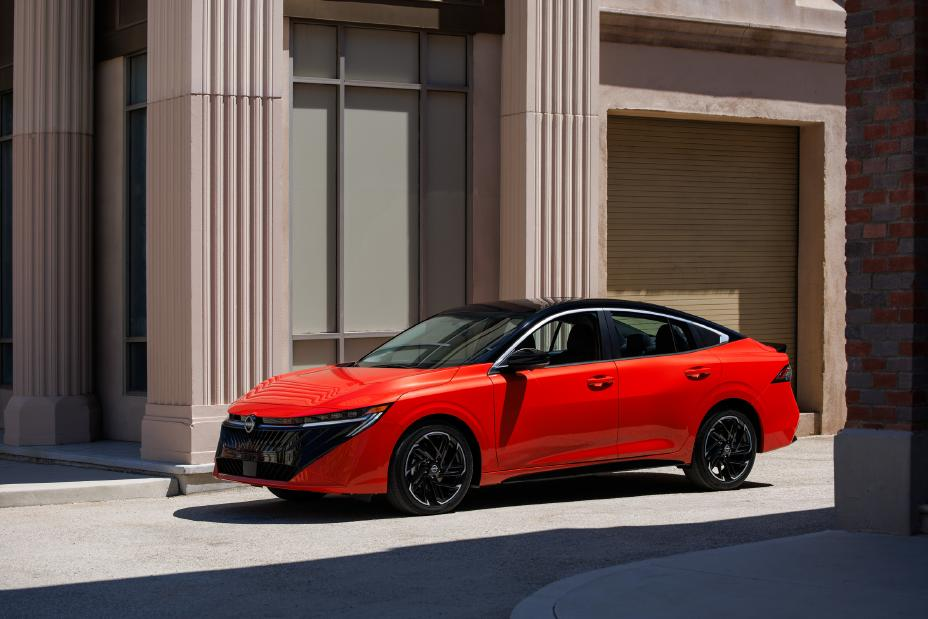
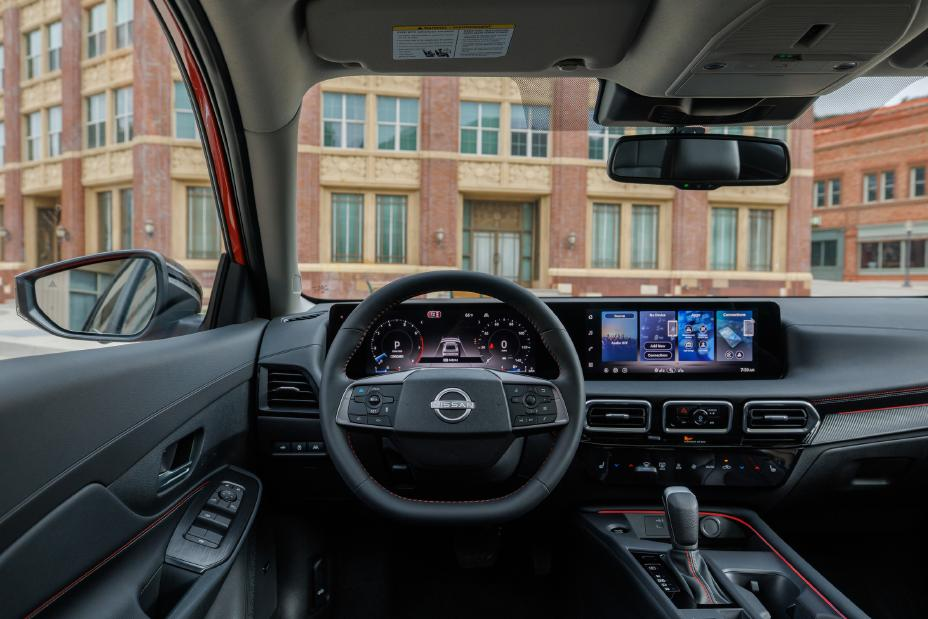
The 2026 Nissan Sentra boasts a more dynamic and refined exterior
The front fascia of the new Nissan Sentra features an evolved V-motion grille, with its character lines flowing into the LED headlights. The newly designed slim-projector LED headlights improve illumination output while retaining an understated aesthetic.
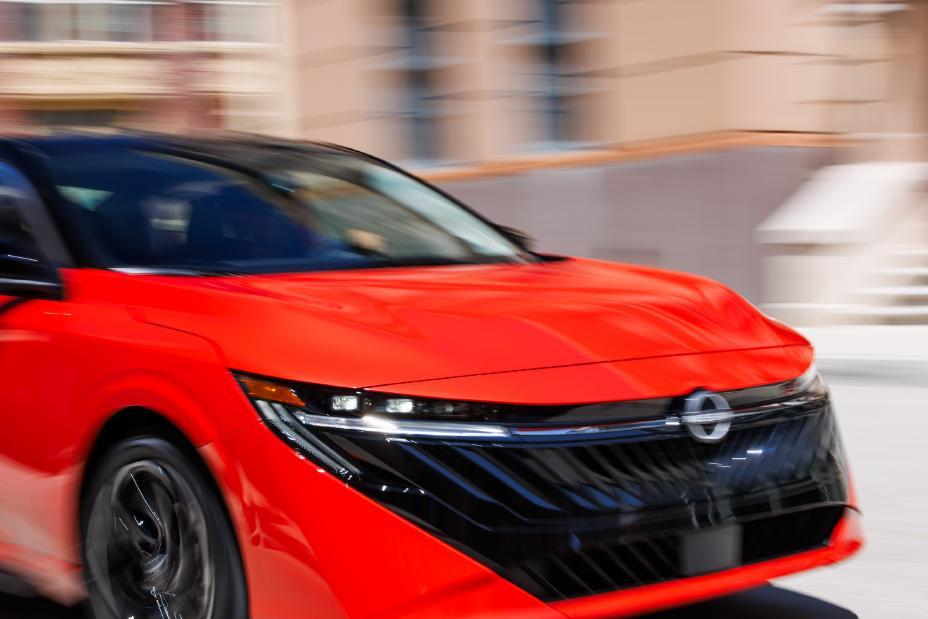
The SR trim also comes with a black appearance package, which includes a distinctive front bumper, dark chrome accents, and 18-inch alloy wheels, all contributing to a more sporty aesthetic.
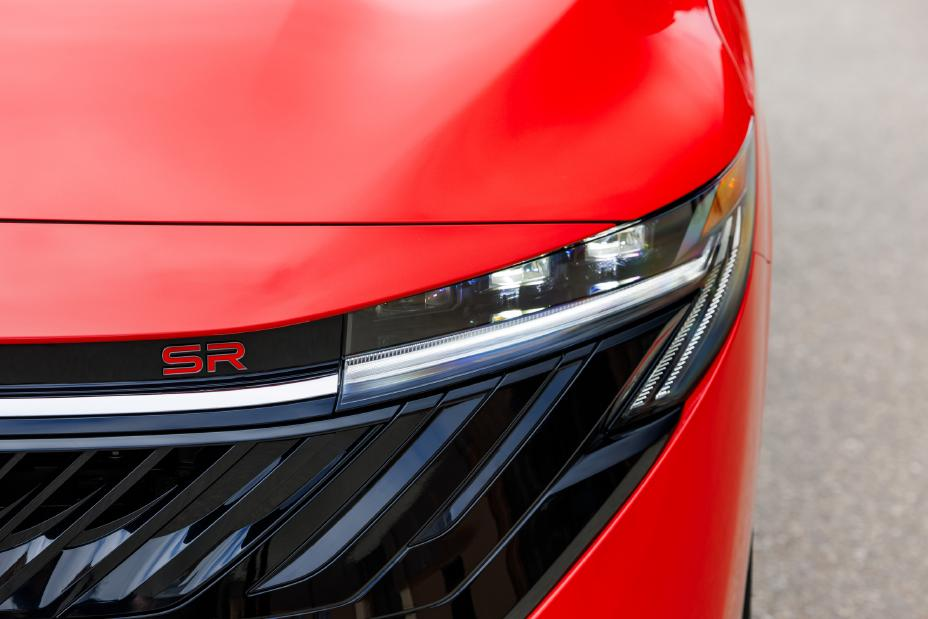
Aerodynamic optimization is another major highlight, with the trunk and rear fender design helping to control airflow and reduce drag, while the underbody panels and tire deflectors further improve efficiency.
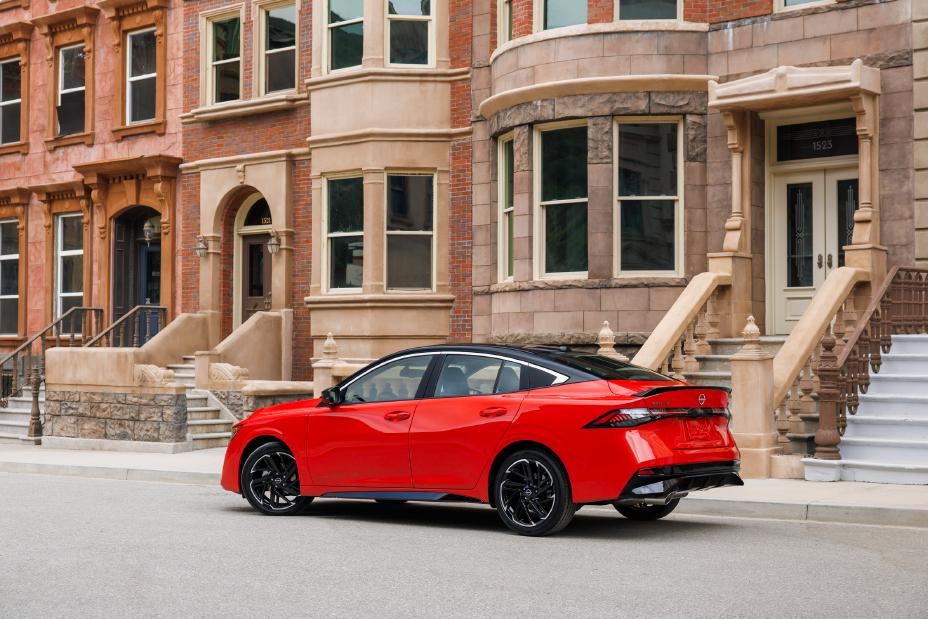
In terms of practicality, the optimized trunk opening and relatively low ground clearance make it easier to load large items.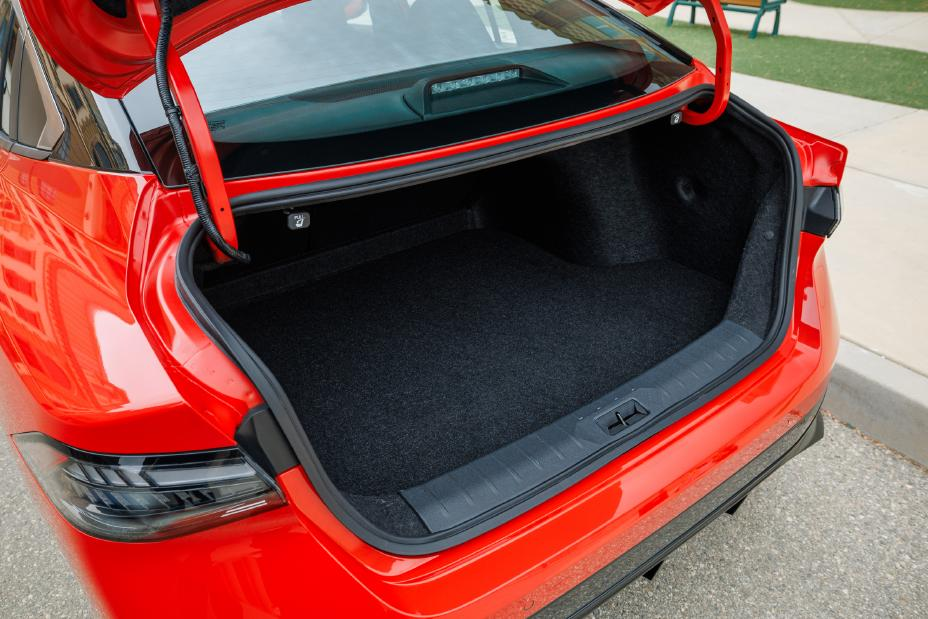
The 2026 Nissan Sentra introduces a tech-forward interior design
All trims except the base S model are equipped with dual 12.3-inch screens, comprising a digital instrument cluster and a central infotainment touchscreen, a combination that leads its class in the compact sedan segment.
Display brightness has been doubled over the previous model, ensuring excellent readability in various lighting conditions. Wireless Apple CarPlay and Android Auto come standard on SV trims and above.
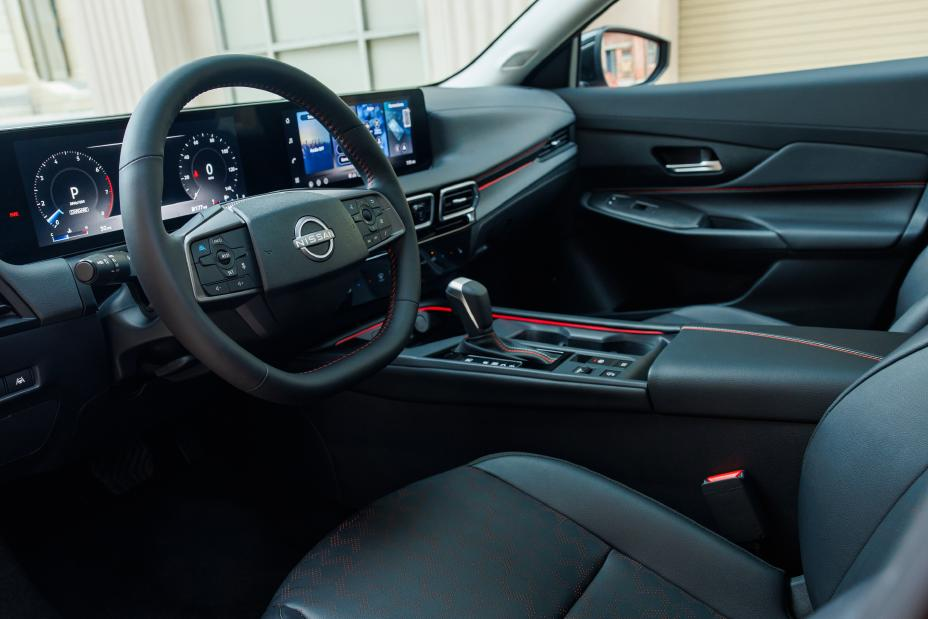
The SL and SR Premium packages also include an eight-speaker Bose audio system, an intelligent panoramic monitoring system, and 64-color customizable ambient lighting, which enhances the luxury feel.
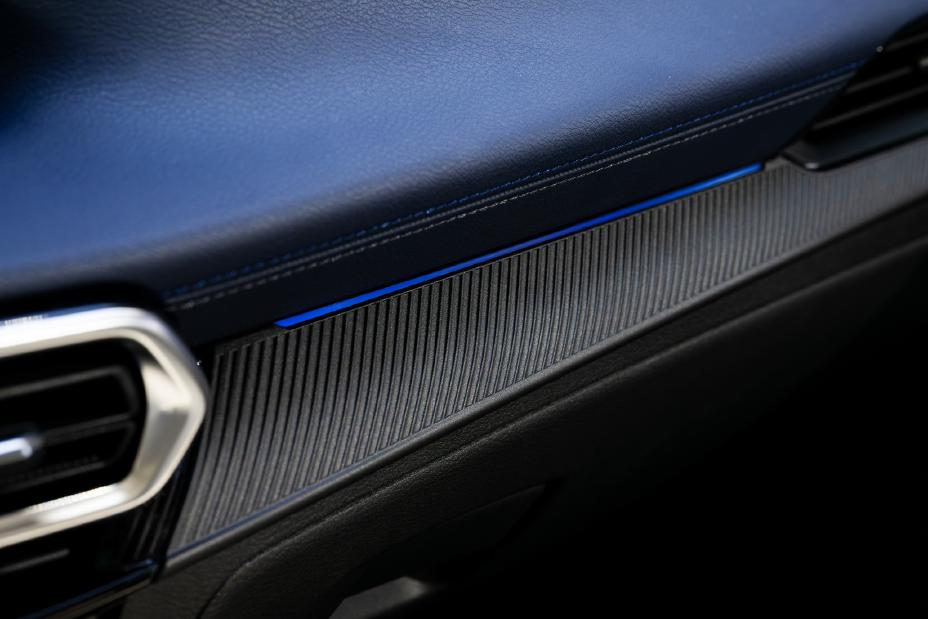
The 2026 Nissan Sentra comes standard with the Nissan Safety Shield 360 suite, which includes Automatic Emergency Braking (AEB), Lane Departure Warning (LDW), and Intelligent Cruise Control (ICC).
The newly added Blind Spot Intervention (BSI) system can actively assist in collision avoidance during lane changes. ProPILOT Assist (available with the SL or SR Premium package) is designed for highway use, helping to reduce driver workload. Up to ten airbags provide supplemental protection.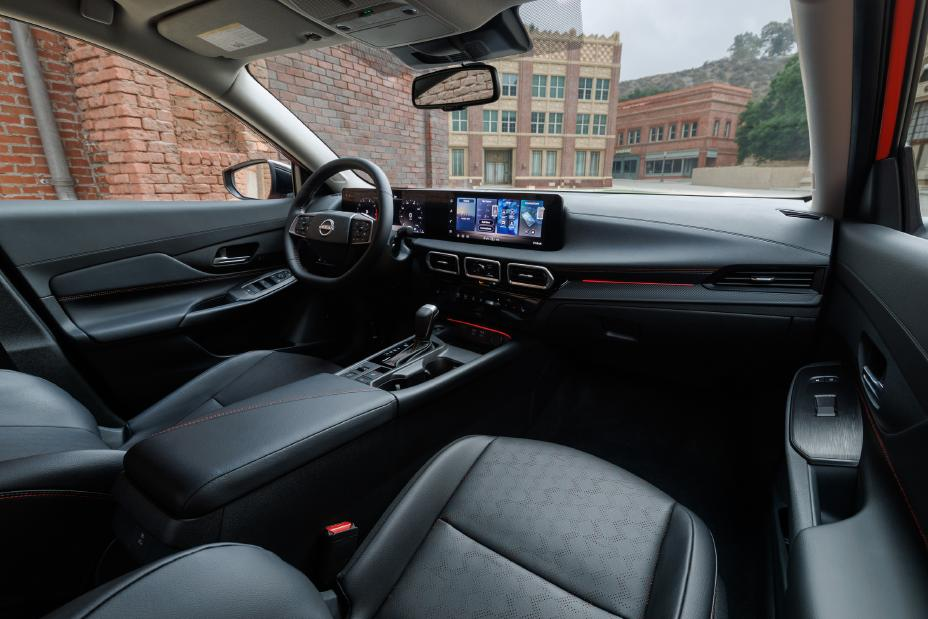
2026 Nissan Sentra Will Feature a Retuned CVT
In terms of powertrain, the 2026 Nissan Sentra continues to utilize the reliable 2.0-liter inline-four engine, delivering 149 horsepower and 146 pound-feet of torque, paired with the Xtronic CVT transmission.
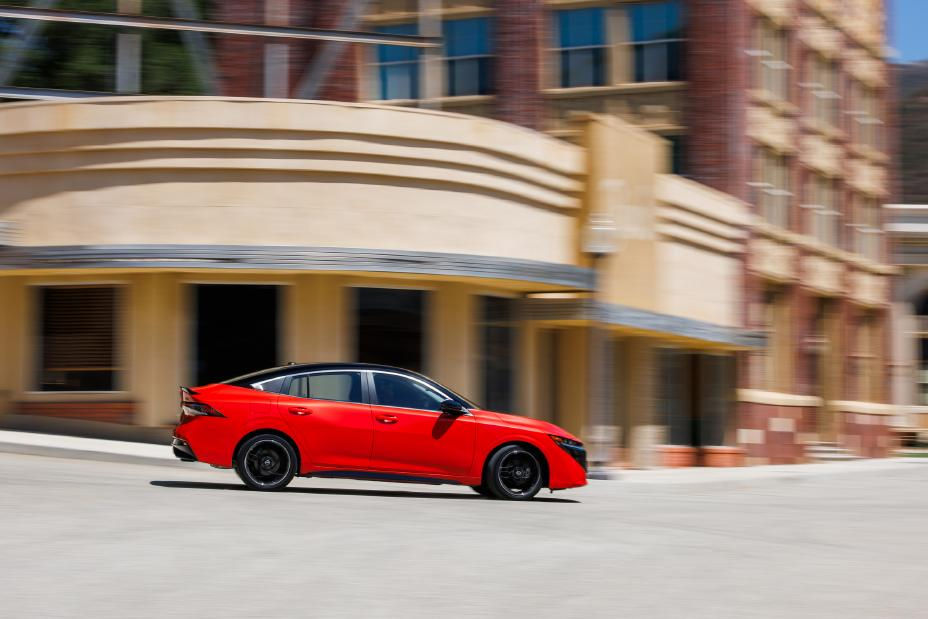
Nissan states that the CVT has been retuned to provide smoother acceleration, along with the addition of a Sport driving mode (for SV, SR, and SL trims), optimizing throttle response and shift logic.
Although this powertrain demonstrates stable performance in terms of efficiency, its performance specifications don’t particularly stand out in the fiercely competitive compact sedan market. Compared to the turbocharged engine of the Honda Civic, the Sentra’s acceleration may slightly lag behind.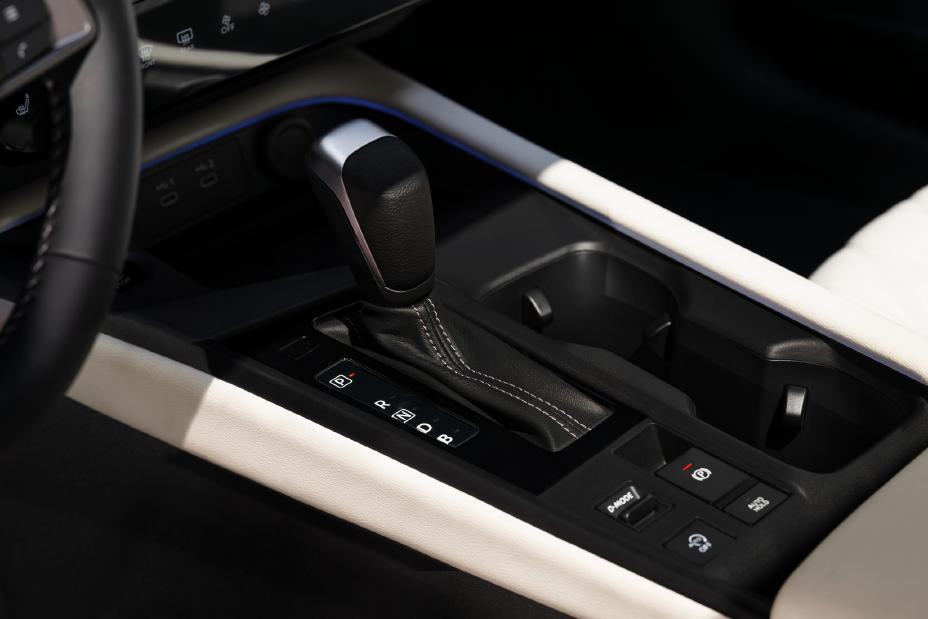
Reasons to Still Consider the 2026 Nissan Sentra
As consumer preferences shift toward SUVs and electric vehicles, the competition for sedans has become increasingly fierce. Since its debut in 1982, the Sentra has undergone nine generations of evolution. As a classic compact sedan with over 40 years of history, it continues to adapt to market demands. It even ranked first as the “Highest Quality Compact Car” in the 2025 J.D. Power U.S. Initial Quality Study (IQS). This alone makes the Sentra a compelling choice compared to rivals like the Civic and Corolla.
YANGWANG U9X, with a speed record of 496.22km/h, claims the top spot on the global car speed rankings.
WilliamSep 22, 2025, 04:15 PM
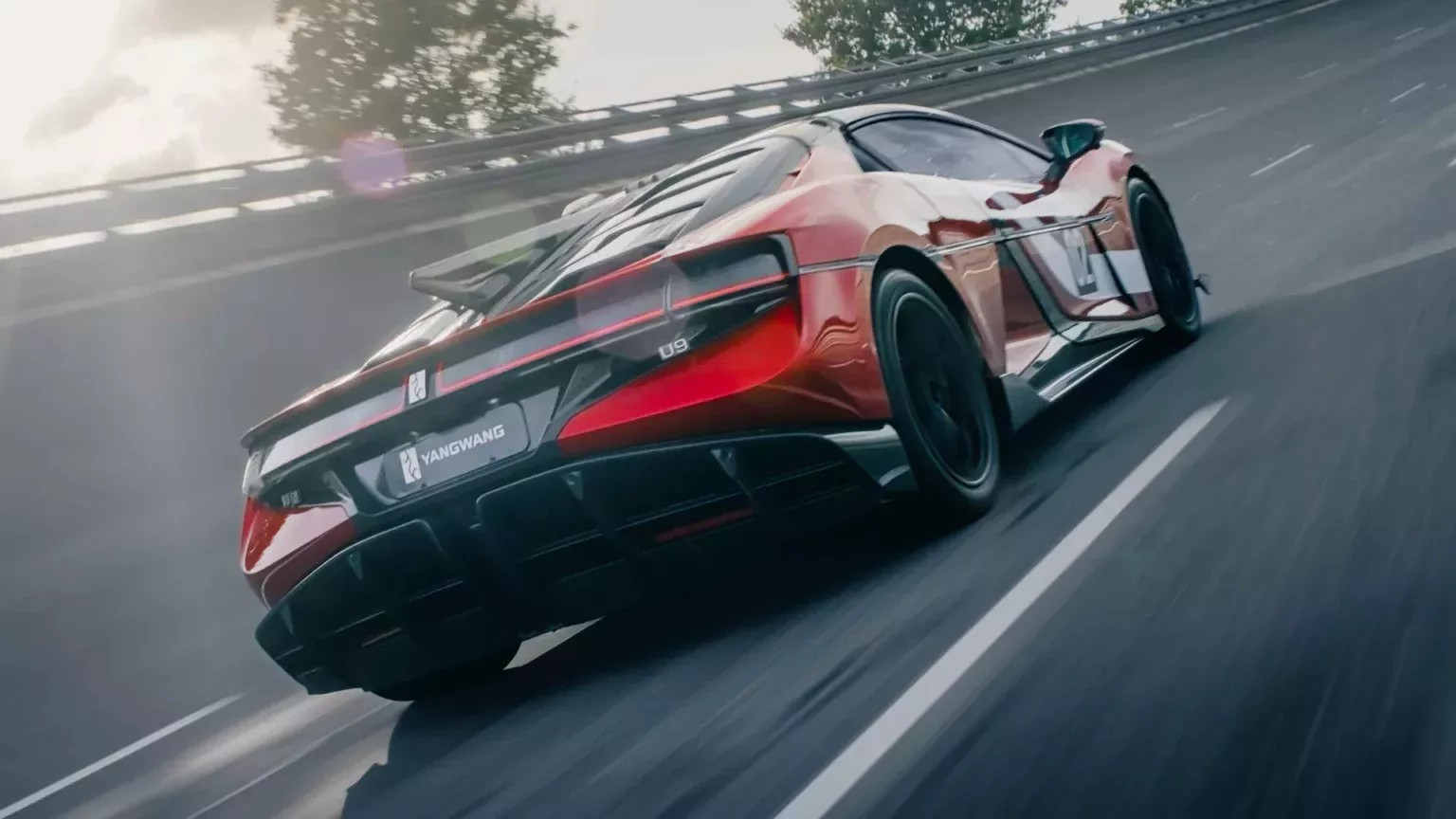
[PCauto] BYD’s high-end brand Yangwang has officially announced that the Yangwang U9 Xtreme (U9X) has achieved a top speed of 496.22 km/h, successfully claiming the top spot on the global car speed leaderboard.
This test was conducted at Germany’s ATP test track, with the U9X surpassing the previous 490 km/h record held by the fossil-fuel supercar Bugatti Chiron Super Sport 300+, becoming the first mass-produced electric supercar to achieve this milestone under unrestricted conditions.
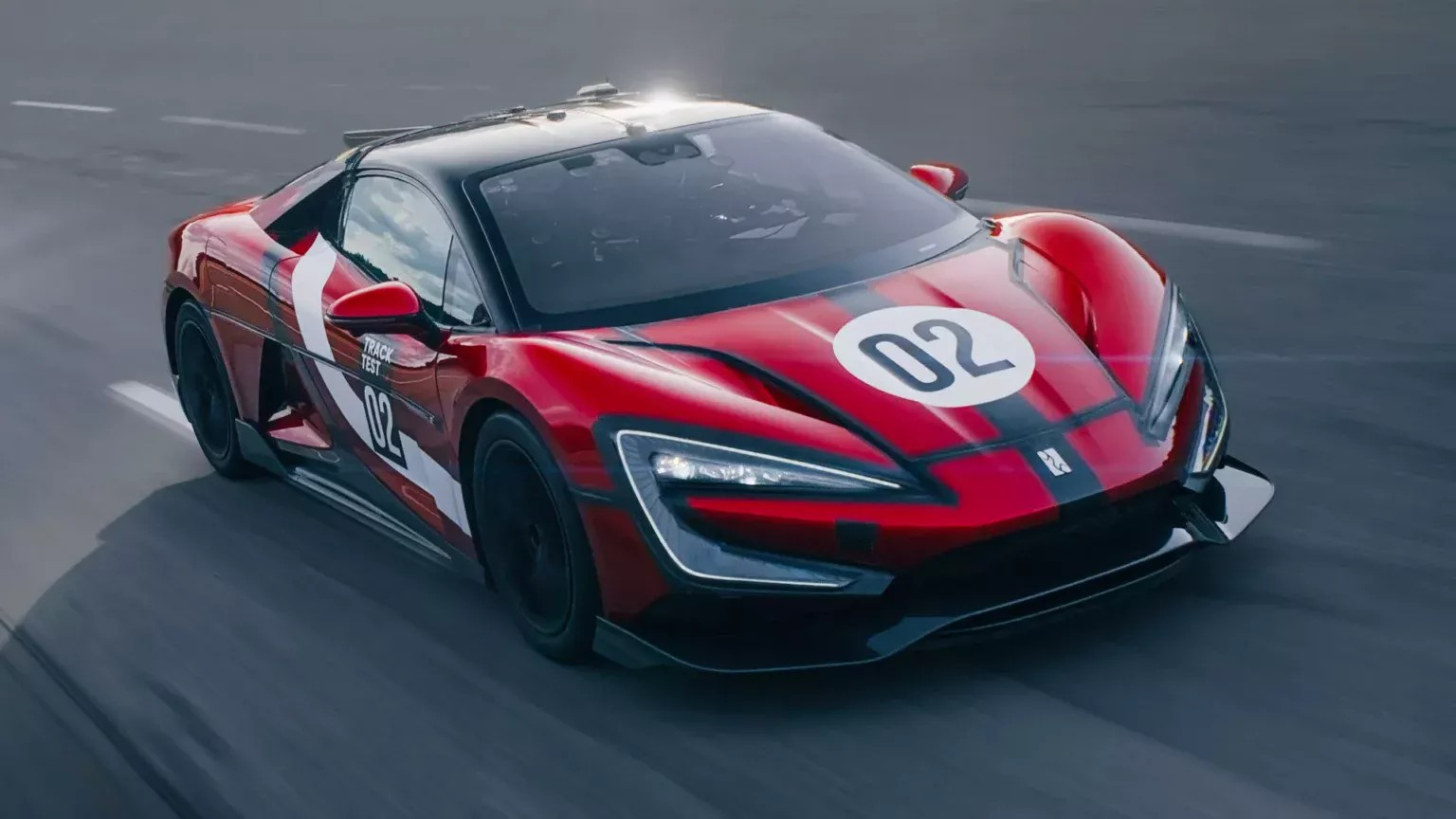
The U9X’s top speed is powered by its ultra-high-power propulsion system
The U9X’s breakthrough is not limited to its top speed alone. Its initial test results at the Nürburgring Nordschleife in Germany, known as the “Green Hell,” are equally remarkable—a lap time of 6 minutes 59.157 seconds, making it the first Chinese mass-produced supercar to break the 7-minute barrier.
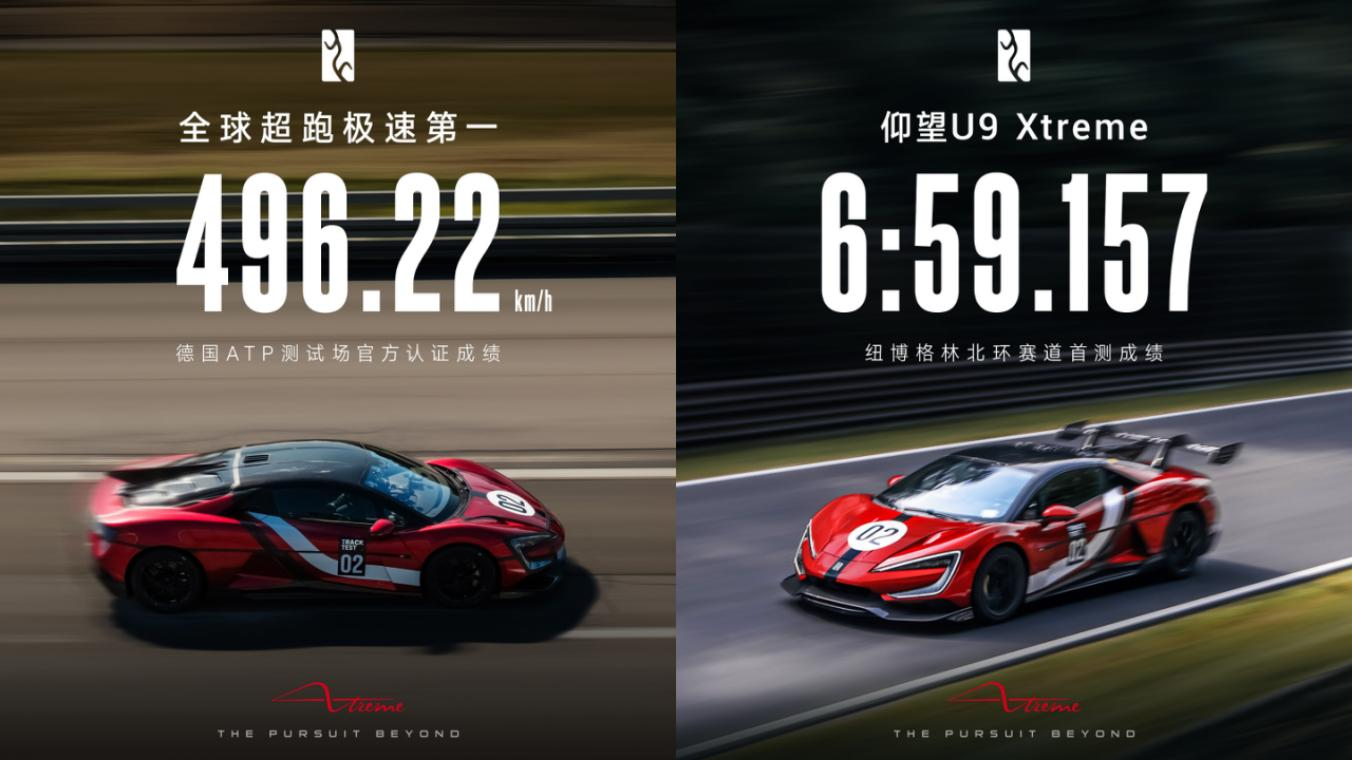
This means that the U9X surpasses traditional fuel-powered supercars in both “absolute speed” and “comprehensive track performance” dimensions.
In the era of fuel-powered cars, the top speed and lap times of supercars were often determined by engine power, aerodynamic design, and chassis tuning. However, the introduction of an electrified platform has redefined the performance boundaries for the U9X.
Its core technological breakthroughs are primarily reflected in the revolutionary upgrade of its power system.
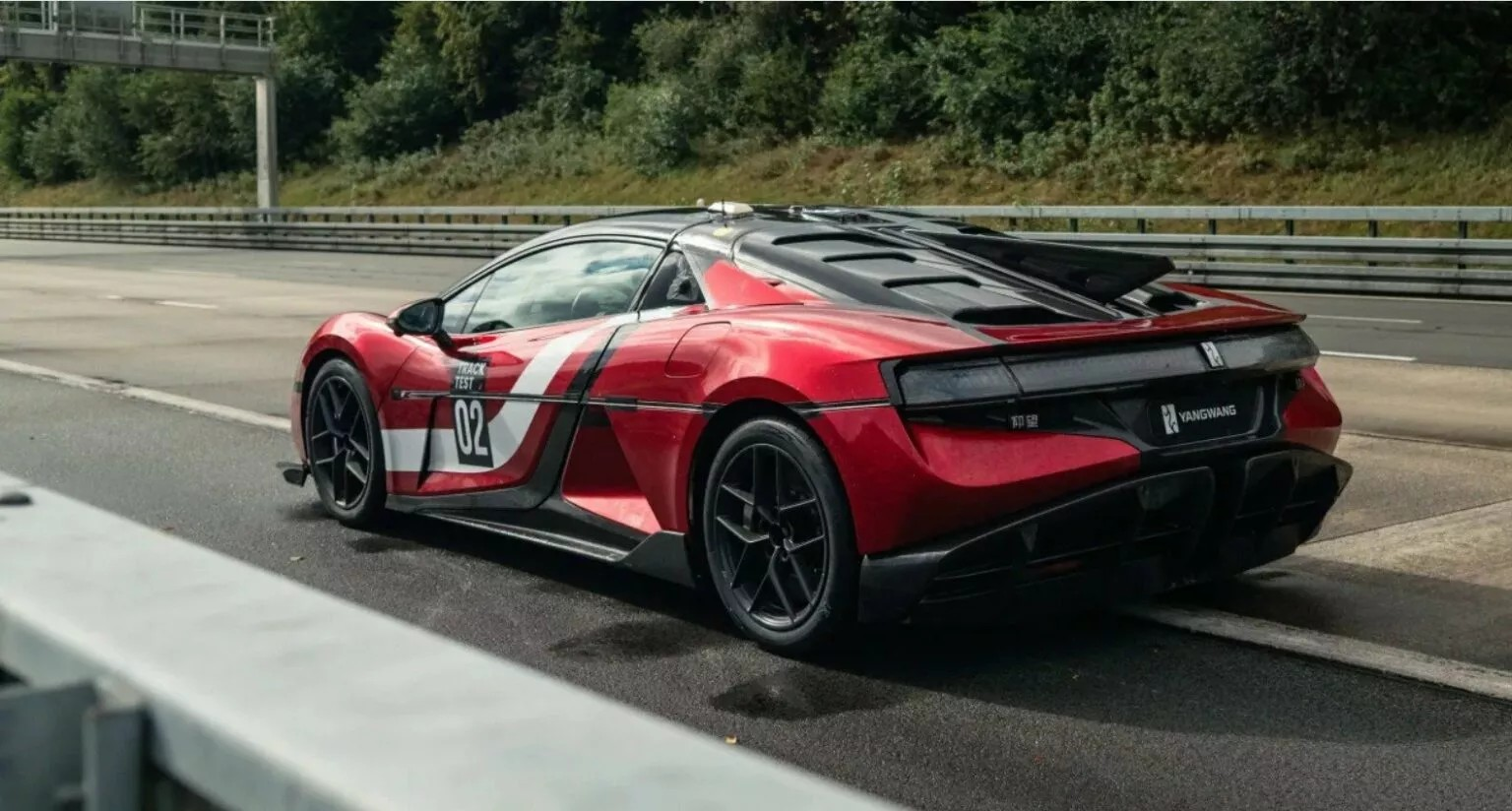
Equipped with the world’s first mass-produced 1200V ultra-high voltage platform, it significantly improves efficiency compared to mainstream 800V platforms, providing a more efficient energy transfer channel for the motors. Four high-performance motors working in coordination, each with a rotational speed of 30,000 rpm, output a combined power exceeding 3000Ps, with a power-to-weight ratio of 1217 Ps/t (horsepower/ton). This number far surpasses the average level of traditional fuel-powered supercars (typically between 600-1000 Ps/t).
To support such high power output, the U9X’s track-grade Blade Battery adopts a lithium iron phosphate (LFP) solution. Through optimizing internal cell resistance and a dual-layer cooling structure, it achieves an industry-leading ultra-high discharge rate of 30C, ensuring the motors receive consistent and stable power output even under extreme working conditions. Meanwhile, the cooling system’s power has been increased by 133%, addressing the heating issue during high-power output.
Tire technology is another secret weapon behind U9X’s record-breaking performance
The GitiSport e·GTR²ᴾᴿᴼ semi-slick tires, co-developed by BYD and Giti, utilize aramid fiber material at bulletproof-vest grade, achieving a strength that surpasses the 500km/h speed barrier. The asymmetric tread design balances grip and water drainage, providing sufficient ground adhesion for ultra-high G-force cornering.
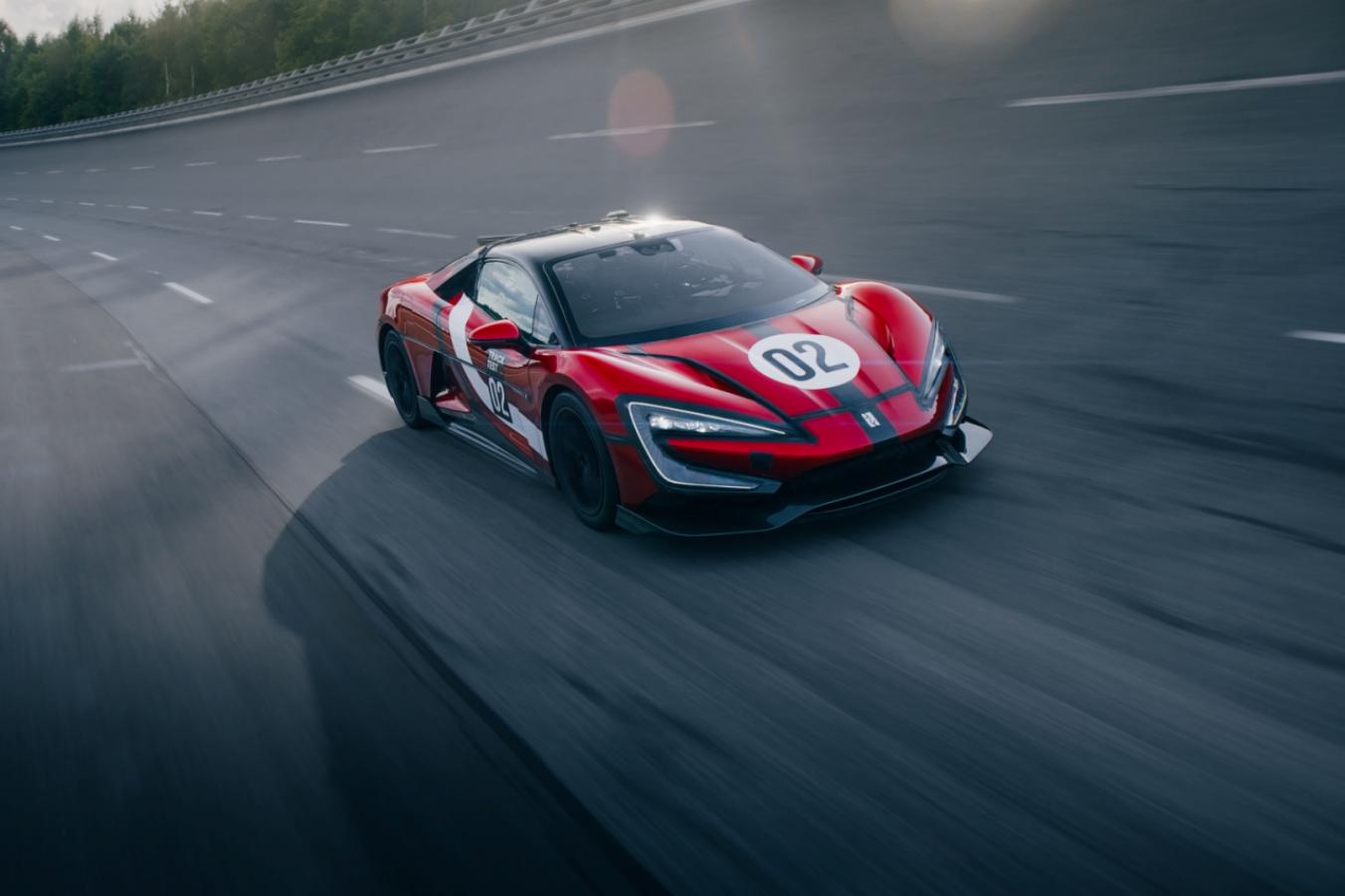
The cooling, braking, and chassis systems have been further optimized
In addition to the breakthroughs in the power system and tires, the U9X cooling system has reconstructed its three-dimensional architecture, adopting a high-flow oil pump to increase overall cooling power by 133%. Even when the motor operates at an extreme speed of 30,000 rpm, it can maintain optimal working temperature.
The braking system is equipped with titanium alloy carbon-ceramic brake discs. The perforated and slotted design enhances heat dissipation and friction efficiency, and the titanium alloy calipers reduce unsprung mass to some extent. This not only avoids the risk of brake fluid boiling but also achieved zero fade during the continuous braking test on the Nürburgring’s 177 corners.
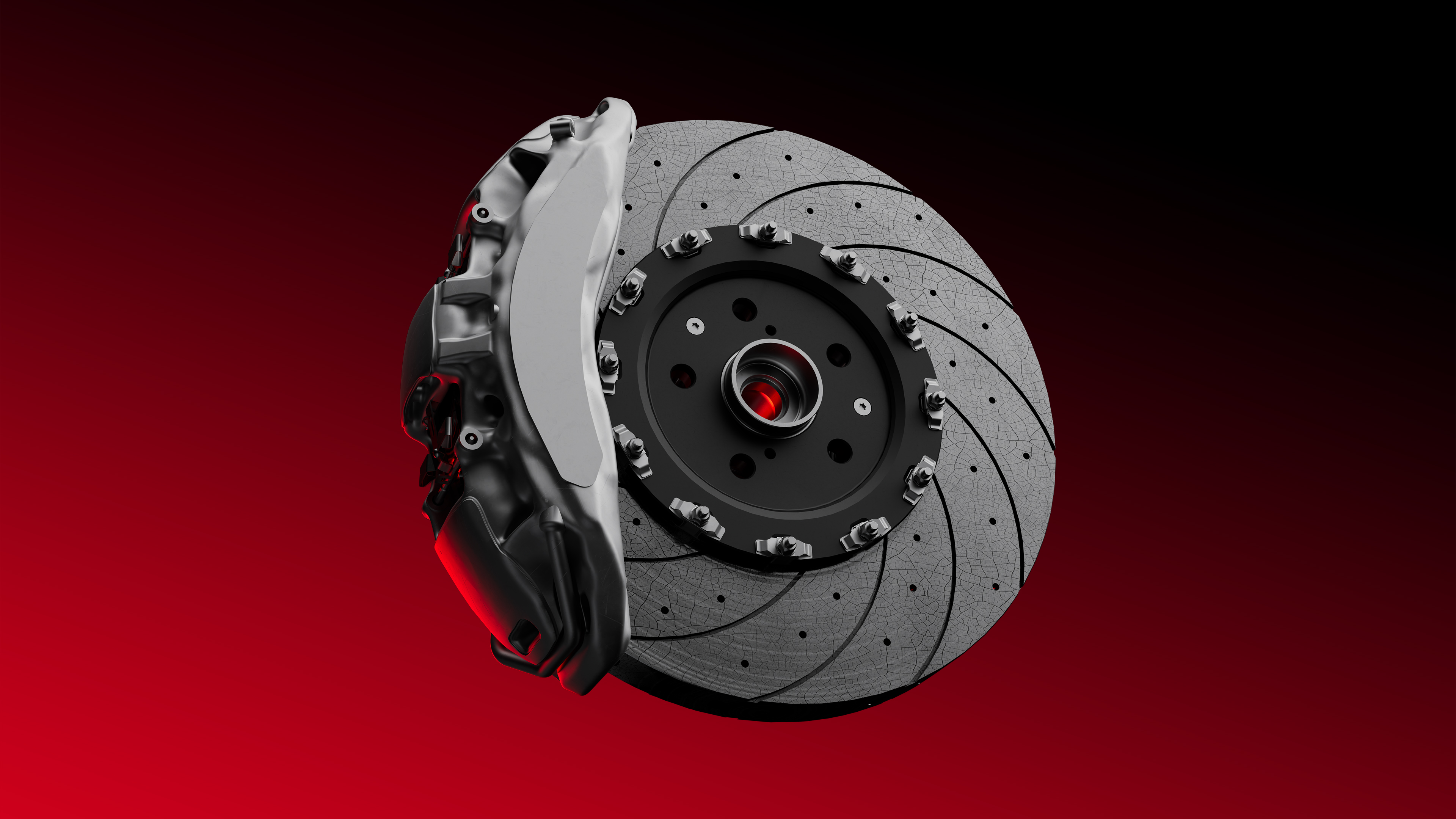
Moreover, the U9X introduces “body posture control” on the track for the first time. Based on the e4Architecture+Yunnian-X technology framework, the vehicle can dynamically adjust the torque of all four wheels and the suspension height, actively suppressing body roll during high-speed cornering.
This “active control” capability allows the driver to maintain precise control of the vehicle under extreme conditions, rather than relying on traditional passive mechanical tuning.
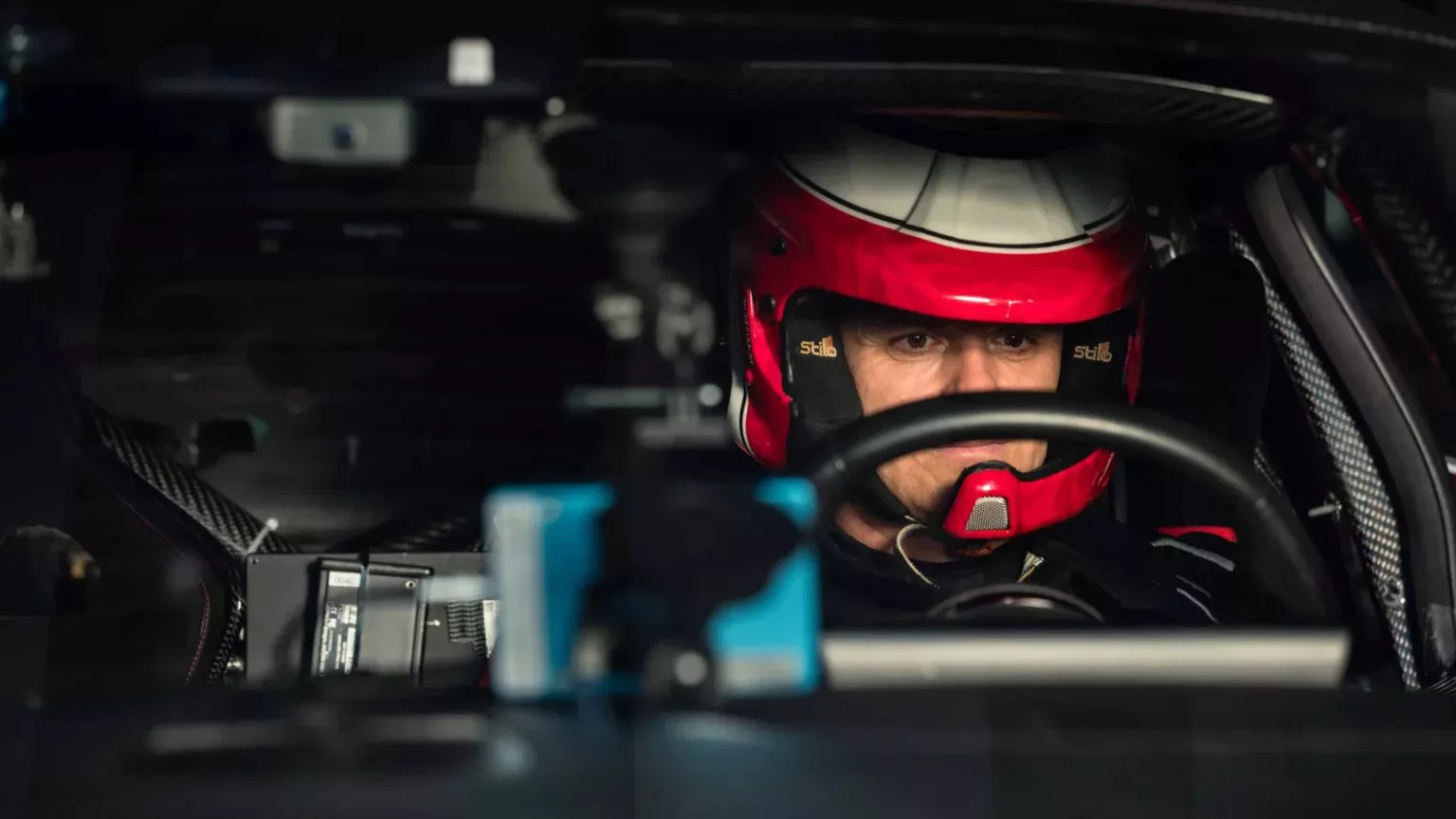
In the past, electric supercars were often labeled as “having fast acceleration but insufficient top speed” and “strong performance but lacking track genes.” However, U9X’s nearly 500 km/h top speed, Nürburgring lap time of under 7 minutes, as well as technologies such as its all-domain 1200V platform and 30C discharge battery, have demonstrated the advantages of electrification platforms in efficiency, sustainability, and intelligent control. This breakthrough not only accelerates the global automotive industry’s transition to electrification but also redefines supercar performance standards.



